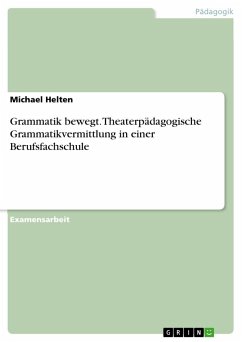Seminar paper from the year 2015 in the subject English Language and Literature Studies - Linguistics, grade: 1,3, Humboldt-University of Berlin (Anglistik und Amerikanistik), course: Language Acquisition, language: English, abstract: Native Spanish speakers tend to mispronounce or to omit the -ed morpheme when it comes to regular English verbs in simple past. (example: managed, arranged, crowded). It is important to remind oneself of the fact that "[t]he basic morphological unit, however, is not the word, but the morpheme [...], the smallest meaning-bearing unit of a language" (Kortmann, Bernd. English Linguistics: Essentials). So, when the -ed morpheme is omitted the listener cannot discriminate whether the person speaking is talking in simple present or in simple past. This might lead to confusion and to serious misunderstandings. I personally found that native speakers of Spanish face serious problems when it comes to the pronunciation of English words. In all the months I spent in Spain I somehow thought about those difficulties that occur constantly and when giving English lessons to Spanish teenagers I finally came to the conclusion that I have to investigate at least one aspect of the phenomenon of the mispronunciation of English words by native speakers of Spanish.
Hinweis: Dieser Artikel kann nur an eine deutsche Lieferadresse ausgeliefert werden.
Hinweis: Dieser Artikel kann nur an eine deutsche Lieferadresse ausgeliefert werden.








